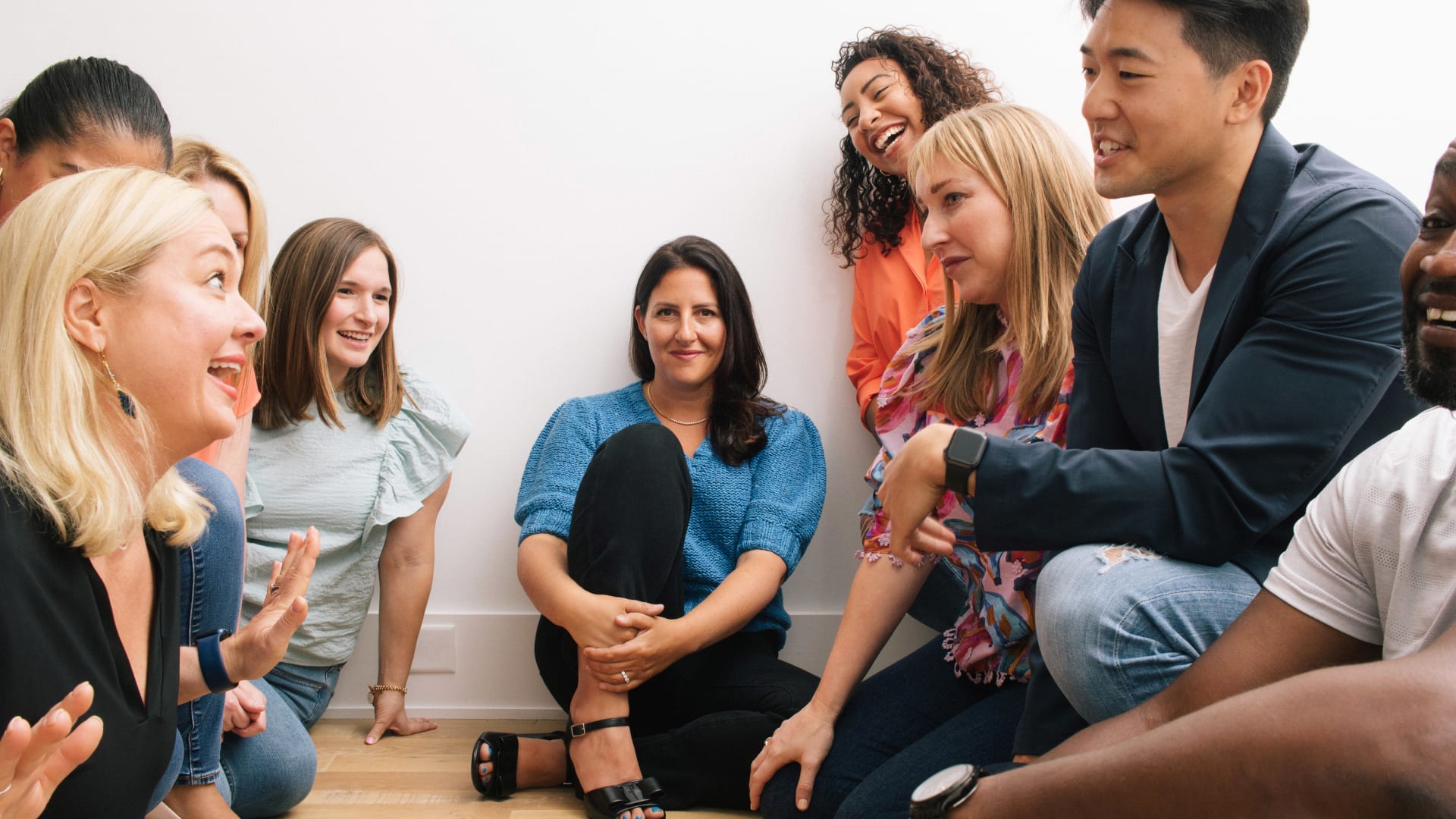Originally announced by Inc. on August 16, 2022. Photography by Wulf Bradley.
Stephanie Nadi Olson started her meteoric ad-sales career when Microsoft recruited her straight out of Georgia Tech as its youngest account manager. By the age of 28, she’d claimed an executive’s chair in Silicon Valley. Amid the always-on stress of her job, she started a family, and that’s when she came to see how the very structure of the traditional workplace is sidelining millions of talented people. So she set out to address the problem by building a new sort of staffing platform. The demand was there: Temp agencies are a $196 billion business in the U.S., and Olson’s Rolodex was full of advertising and marketing execs who needed teams for events, campaigns, and social media initiatives at the likes of Twitter and Hulu. In 2018, with $10,000 of her own money, she built an entirely virtual platform, with flexibility at its core, to help independent marketers find work. In 2021, Atlanta-based We Are Rosie raised private equity funding that valued the company at $110 million. To get there, Olson would have to live through a personal health crisis.
— As told to Christine Lagorio-Chafkin
The first time I felt fallible in my life was after the birth of my first daughter, in 2013. I was a sales director in Atlanta, and had postpartum depression and anxiety that went undiagnosed for a year and a half. It taught me humility and how to ask for help–to raise my hand and say, “I can’t keep up this crazy pace. I can’t be traveling to New York City for a week at a time and breastfeed my daughter at home in Georgia.” After I had my second daughter, I moved to a startup where I was the only parent among hundreds of employees, and the only woman in leadership. The culture was unsupportive of moms or boundaries. It was so rough.
I admit I carried some suppressed rage over a system that made me feel I needed to work 65 hours a week when I had a newborn. But I think we underestimate how helpful rage can be in pushing us to create change. It made me see how many people are marginalized by how work happens. There’s sexism. Racism. Ableism. Ageism. Not to mention the all-year process of work–the hours that don’t line up with kids’ school schedules. I wanted to find good work for everyone who needs it in a way that aligns with their life and treats them with dignity and respect. This is how We Are Rosie was born. In hindsight, I’m grateful for that experience, because I needed to be made pretty uncomfortable to leave a seven-figure job. Something had to get me off that hamster wheel.
In my Palestinian family, my grandmother died in a refugee camp, and my dad grew up there, motherless. Neither of my parents went to college, but my dad worked every day in a mall so I could do things like play softball. I’m standing on the shoulders of people who have sacrificed so much for my success. I began to feel a tremendous responsibility to use the privilege and resources I’d been given to do something greater with my life. And I yearned to create a legacy for my daughters.
Starting my company became a spiritual mission–and a personal one. I named it after my youngest daughter, Margot Rosie. As it took off, I didn’t take a paycheck for two years. My small team was fully invested too. In fact, my employees were getting burned out. Some were homeschooling kids, but they cared so much about the mission they didn’t want to take the unlimited paid time off we offered.
We weren’t walking the walk. We had to get serious about mental health and burnout. So we mandated five days off each quarter for employees, creating a forcing mechanism: They cannot access their full quarterly bonus unless they take that time off. We realized that when it comes to employee benefits, we need a tinkerer’s mindset. Needs change. Ask, over and over, what employees need. For culture to be truly compassionate, it cannot be prescriptive. Leadership decisions cannot happen in a vacuum.
We have 15,000 freelance and independent marketers–we call them Rosies–on our platform available for project-based work, from media buying to analytics to social media management. We use our technology and personal vetting to recommend individuals and teams for jobs. Contracts are capped at 40 hours a week. We don’t just file résumés. We ask about potential, real experience, and what lights you up. We are leaps and bounds more diverse by age, race, gender, and education than the marketing industry as a whole. That highlights how many brilliant people are underserved by the current system of work–because it hasn’t changed in a hundred years. But I have learned that systems put into place by society can actually be changed.
